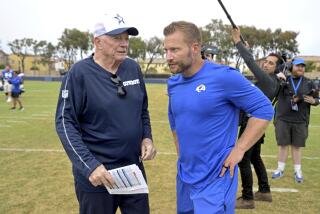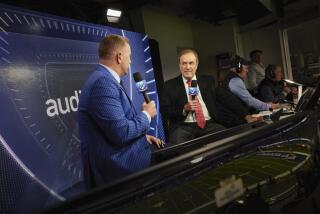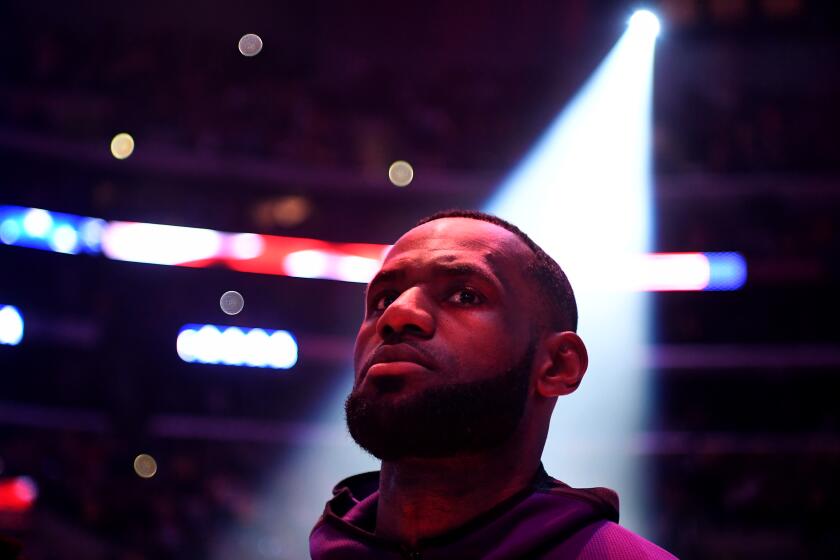Troy Aikman worried about NFL’s status as the No. 1 sport
- Share via
Former NFL quarterback Troy Aikman expressed concerns about the NFL’s future Friday during a forum discussing “Is L.A. Ready for the NFL,” sponsored by Zócalo Public Square.
Aikman, who is in the college football and NFL Halls of fame, was on a panel that included UCLA Coach Jim Mora, UCLA economist Lee Ohanian and Los Angeles Times’ NFL columnist Sam Farmer.
When the subject of concussions was brought up, Aikman said the league may be at a critical point in its history.
League officials and owners are “very concerned about concussions,” said Aikman, who is now a television analyst. He added, “the long-term viability, to me anyway, is somewhat in question as far as what this game is going to look like 20 years from now.”
Aikman does not have a son, but said, “if I did, I wouldn’t tell him he couldn’t play football. If he wanted to, I would say ‘OK, great.’ But I don’t know if I would be encouraging him to play. Whereas, with the other sports, you want your kids to be active and doing those types of things.”
That, to Aikman, puts the NFL’s future as the most popular sport in question. He cited the book, “America’s Game,” which touches on the mistakes baseball made that allowed football to overtake it.
Aikman said that the league wants to continue to grow the pie, but cautioned, “I think we’re going to look back at this point in time and say these were the missteps that the National Football League took that kept football from being the No. 1 sport.
“I believe, and this is my opinion, that at some point football is not going to be the No. 1 sport. You talk about the ebbs and flows of what’s popular and what’s not. At some point, the TV ratings are not going to be there.”
Aikman admitted, “I can’t justify that because the numbers say otherwise, but I guess time will tell.”
The absence of football in Los Angeles was an indicator to Aikman that the NFL could have long-term issues.
“At one time, watching football was an event,” Aikman said. “Monday Night Football was a big event. Now you get football Sunday, you get it Monday, you get it Thursday and, late in the year, you get it on Saturday.
“People in Los Angeles realized, ‘You know what, life’s OK without the NFL.’ If I’m an owner, I don’t want any fan thinking that.”
Aikman realized this problem when the NFL Network was developed.
At first, he said, when “people couldn’t get [the channel] in the homes and, all of sudden, fans, me included, were saying, ‘I wasn’t getting the Thursday night game and I was OK with that.’ That’s not a good thing.”
More to Read
Go beyond the scoreboard
Get the latest on L.A.'s teams in the daily Sports Report newsletter.
You may occasionally receive promotional content from the Los Angeles Times.











